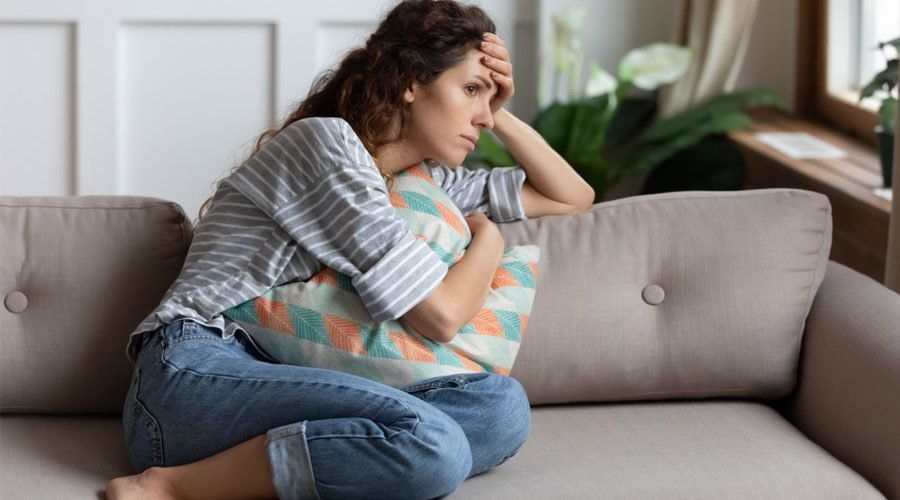In the wake of the pandemic, more people are struggling with anxiety than ever. Fortunately, there’s no longer the stigma around mental health issues of former years, which has made seeking help easier for those suffering.
Many people who experience anxiety are keen to explore ways of dealing with the problem without turning to medication. While anti-depressants may be the best option for some, for others, different methods may be used to successfully manage symptoms so that the individual can get on with fully enjoying life again.
We explore in this article the alternatives to medication for those dealing with anxiety and how each works to alleviate symptoms.
Table of Contents
Talking Therapies
Therapy is often a highly effective way of helping sufferers affected by anxiety, and it can even totally resolve the issue.
A counselor will talk with you to explore the root causes of your anxiety, and together, you’ll formulate some coping strategies to use when you experience symptoms. CBT (Cognitive Behavioral Therapy) may also be deployed to help you challenge some underlying thoughts driving your feelings of fear and distress. These strategies can continue to be used to tackle anxiety if it arises again in the future.
You may meet with an online therapist from the comfort of your home for added convenience. This option is especially useful for those whose anxiety makes it difficult to leave the house or be in unfamiliar spaces. Before signing up for sessions, read online-therapy.com reviews to ensure that the therapist offers a high-quality service. Check, too, that the therapist has all the necessary qualifications and, if relevant, that they accept health insurance.
Make the Most of Natural Remedies
Lavender and chamomile have been used for centuries for their calming effects, which can soothe anxiety and help promote better sleep.
The body produces an excess of cortisol in response to stress; an oil found in lavender can decrease cortisol levels, bringing about a sense of relaxation and ease. Keep anxiety at bay throughout the day by using lavender soap or applying lavender oil to the skin on the back of your hand.
Chamomile can be consumed as a refreshing tea or is available in capsules. While chamomile and lavender are considered safe, it’s best to speak with your doctor before using them, especially if you currently take other medications or are pregnant.
Exercise Anxiety Away
When we exercise, our brain releases endorphins – the so-called happy hormones – into the bloodstream, giving us a spike of the feel-goods and reducing stress and tension. This can have a profoundly positive impact on our sense of well-being, as well as our general health.
Just twenty minutes of physical activity is all it takes for the endorphins to kick in. You don’t need to undertake high-intensity training or go to the gym if this isn’t your thing. Try swimming, dancing, or simply fast-walking around the block.
Eat Your Way to Calmness
What we eat can fundamentally affect our mood, and anxiety symptoms can often be significantly reduced by ensuring we’re eating a nutritious diet that’s fueling our bodies correctly.
Foods containing omega-3 fatty acids have been found to have a mood-boosting, anxiety-reducing effect. Eating salmon, tuna, and leafy green vegetables could significantly impact how you’re feeling.
Manage Your Mood with Meditation
Meditation can have many benefits for the body and mind. It’s a powerful stress-buster and can rapidly ease feelings of anxiety.
If you’re entirely new to meditation, there are many accessible ways to pick up the practice. You could join an in-person or a virtual class or use a guided meditation app to get started. As you get more used to meditating, you’ll find that you’ll be able to slip into the ‘zone’ increasingly quickly; this means that, should you start experiencing anxiety symptoms, you’ll be able to find a quiet room, undertake a short meditation, and feel better.
The Power of Nature
Several studies have recently revealed the vital link between our exposure to nature and the natural world and improved mental health. Spending some time in nature daily can make a huge difference to feelings of anxiety and stress, promote a happier mood, and even help improve cognitive skills and help you sleep better at night.
The Japanese have a special word for the feeling of calmness often elicited by a walk in nature: it translates as a ‘forest bath,’ which perfectly sums up the sense of relaxation and deep peace that we experience when spending time in green spaces.
The above guide may help you to find ways to manage your anxiety without needing medication to alleviate the symptoms. It’s important to note that anxiety can be a serious condition that can have an extremely detrimental effect on a person’s life. If you’re regularly experiencing anxiety, it’s always best to talk with your doctor to access support and identify the way forward.
Whether it’s through medication, talking therapies, the methods listed above, or a combination of any or all of these things, remember that anxiety is an inherently manageable condition that many sufferers fully recover from.





